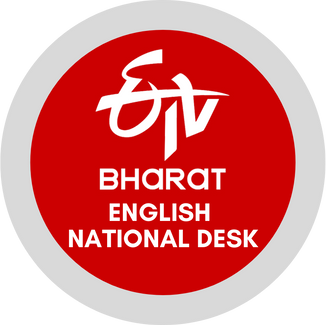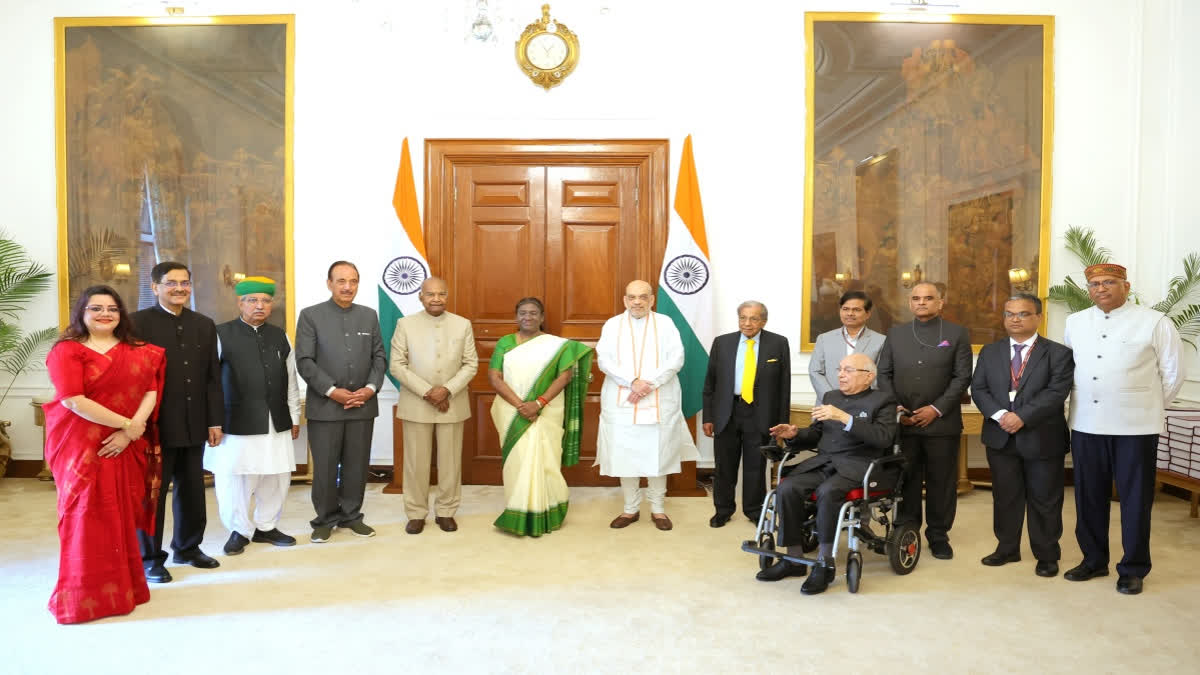New Delhi: The high-level committee on 'one nation one election' headed by former President Ram Nath Kovind, on Thursday submitted its report on simultaneous polls to President Droupadi Murmu on March 14. The committee said it was of the unanimous view that simultaneous elections will bring fundamental transformation in the electoral process and overall governance, while recommending simultaneous elections for Lok Sabha and state assemblies as the first step followed by synchronised local body polls within 100 days.
The committee recommended that the system of simultaneous elections of the House of the People and state legislative assemblies, along with the elections to the panchayats and municipalities, should be synchronised by adopting appropriate constitutional changes, and these should be put in place in two steps.
First step: simultaneous elections for the Lok Sabha and state assemblies
The first step will be holding simultaneous elections for the House of the People (Lok Sabha) and the state legislative assemblies, and for this, no ratification by the states will be required for the constitutional amendment. The Lists are divided in a manner that the residuary power vests in the Union, the states’ legislative power is subject to encroachment by parliamentary legislation, and the power to amend the Constitution [except some defined parts] vests in Parliament and does not require a ratification by the states.
The superintendence and control over elections to the House of the People and legislative assemblies is vested in the Election Commission, and Article 327 confers power upon Parliament to make provision for elections for the House of the People and the Legislative Assembly, while the states can legislate in relation to elections to their legislative assembly to the extent it is not covered by parliamentary legislation.
For attaining the first step of simultaneous elections, a Constitutional Amendment Bill would have to be introduced amending Article 83 (Duration of Houses of Parliament), and Article 172 (Duration of State Legislatures), and insertion of Article 82A in the Constitution would have to be made.
The committee said, “Article 82A. 1. The President of India may by notification issued on the date of the first sitting of the House of the People after a general election, bring into force the provision of this Article, and that date of the notification shall be called the Appointed date”.
“2. Notwithstanding anything contained in Art. 83 and 172, all the Legislative Assemblies constituted in any general election held after the appointed date shall come to an end on the expiry of the full term of the House of the People”, it added.
Second step: synchronizing elections to the municipalities and the panchayats
The second step, elections to the municipalities and the panchayats will be synchronised with the general election and the state assembly elections, in such a way that they are held within 100 days of holding elections to the Lok Sabha and state assemblies. The committee said that this will require ratification by not less than one-half of the states.
Articles 243K and 243ZA of the Constitution of India mandates elections to all Local Bodies in a phased manner over a period of 5 years.
According to the panel, in order to implement the second step, another Constitutional Amendment Bill would have to be introduced in which insertion of Article 324A and amendment to Article 325 of the Constitution would have to be made. The insertion of Article 324A will ensure that elections to municipalities and panchayats are held simultaneously with the general elections.
In case the term of the Municipalities and Panchayats expires sooner than the expiry of five years from the date appointed from their first meeting, the term of such municipalities and panchayats constituted under a mid-term election, will be to the unexpired period of their term until the next general elections. “Since these amendments touch upon State subjects (Entry 5) of Schedule VII, Part IX and Part IX A of the Constitution of India, ratification by not less than half of the States will be required under Article 368(2) of the Constitution of India”, said the committee’s report.
Ratification by states for constitutional amendments
Article 368 lays down the procedure for amendment of the Constitution. The proviso to Article 368(2) enlists certain provisions of the Constitution, which, if amended, will also require ratification by not less than one-half of the states. This proviso was introduced with a view to give effect to the federal principles.
The limitations referred are of two types, i.e., substantive and procedural. Substantive limitation prohibits any kind of amendment, which may alter the basic structure of the Constitution. However, the procedural limitation deals with the manner in which the amendment is to be carried out, if permissible in law, e.g., ratification of the amendment by state legislative assemblies. Entry 72, List I of Seventh Schedule empowers the Parliament to make laws regarding elections to Parliament and Legislatures of States.
Article 328 of the Constitution of India enables the states to make laws with respect to all matters related to or in connection with the elections to the Assemblies. This power is subject to the provisions of the Constitution and to the laws made by the Parliament, if any, in this regard. The elections to the House of the People and the State Legislative Assemblies are held by the Election Commission of India under the Constitution of India, The Representation of People Act, 1950, The Representation of People Act, 1951, and the rules and orders made thereunder.
Therefore, the amendments required for simultaneous elections to the House of the People and the State Legislative Assemblies do not fall under the purview of the proviso to Article 368(2) and hence, do not warrant a ratification by the states.
Amendment for single electoral roll and single elector’s photo identity card
In order to have a single electoral roll and single elector’s photo identity card, an amendment shall be made to Article 325. This amendment shall have an overriding effect over Articles 243K, and 243ZA. The Election Commission of India should prepare the electoral roll “in consultation with” the State Election Commission(s), which will substitute any electoral roll prepared earlier by either the Election Commission under Art 325 or the State Election Commissions under Art. 243K and Art. 243ZA.
Introduction of amendments to Article 325 puts an overriding effect to Article 243K and 243ZA which are the provisions under Part IX and IX A. Furthermore, every state has their own provisions for the electoral roll in their respective state laws related to panchayat and municipality.
Introduction of single electoral roll and single elector’s identity card will put an overriding effect upon the provisions of state laws also. Therefore, in order to enforce the Amendment in Article 325 for single electoral roll and single elector’s photo identity card, ratification by half of the states is required.
The insertion of new Article 324A will facilitate the simultaneous elections of the panchayats and municipalities with the general elections of the House of the People and the state legislative assemblies. “To give effect to the aforesaid amendment, a Constitutional Amendment Bill needs to be passed with the ratification by not less than half of the States since these amendments touch upon the subjects of the State”, said the committee.


